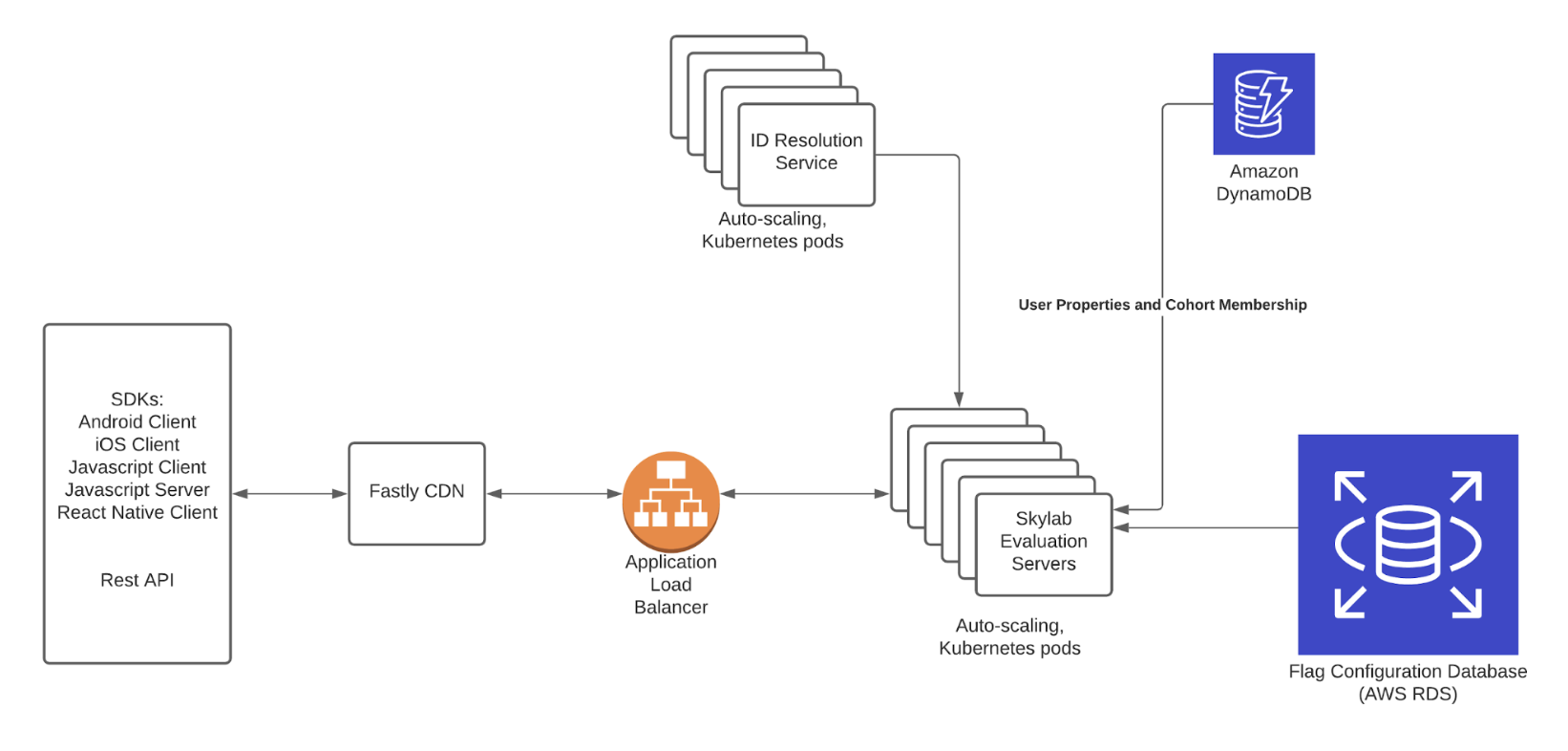Performance and scaling
In order to run a powerful, insight-generating experimentation program, you’ll need three things:
- A robust identity resolution system
- Access to a store of user metadata
- Access to behavioral cohorts
If you’re looking to launch an experimentation program at your company, you should know that Amplitude Experiment has all three.
To get the most out of these capabilities, make a request to Amplitude Experiment’s endpoint for each individual user.
Implementation recommendations
To provide the best experience to your users, we recommend the following:
- Use local defaults. All Amplitude SDKs support local defaults for experiments. To accommodate the rare occurrence that Amplitude’s systems might be down, we recommend using local defaults for all your experiments
- Use local storage (cache) on Client SDKs. Amplitude’s client-side SDKs store user variants in local storage. This can help reduce the number of network calls coming from the client. Read more about performance and caching here.
Architecture
The Amplitude Experiment architecture is built on two components:
- Fastly CDN. All requests to Amplitude servers are routed through Fastly, one of the best CDNs out there.
- Reliable hosted AWS services. Amplitude uses Application Load Balancer, Relational Databases, and DynamoDB, which guarantee high availability.

Was this page helpful?
May 21st, 2024
Need help? Contact Support
Visit Amplitude.com
Have a look at the Amplitude Blog
Learn more at Amplitude Academy
© 2026 Amplitude, Inc. All rights reserved. Amplitude is a registered trademark of Amplitude, Inc.